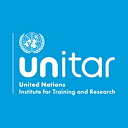
Name: Carmen Betancur
Title: Psychologist
Country: Colombia
Training programme: Youth-led Peace and Reconciliation in Colombia: A Transformational Approach
On August 24th, 2016, the signature of a ceasefire agreement between the Government of Colombia and the Revolutionary Armed Forces of Colombia lit a sparkle of hope in the hearts of those affected by a conflict that had lasted for more than half a century. But real and sustainable peace goes way beyond agreements and handshakes. In fact, these are just the first steps of many more towards a peaceful future. The aftermath is challenging as conflicts always take their toll on those directly or indirectly involved in them.
Carmen Betancur, a psychologist actively working on peacebuilding initiatives, knows it from experience. “After so many years of conflict, the many social issues that followed it were normalized to a point that it became almost a landscape of our reality. Our society is still frightened because of everything that has happened to us and some people do not see much difference between what life used to be during the conflict and what life is now that it is over”, she explains. A survivor of violent situations herself, Carmen dedicates her time and energy to support the psychological development of children and youth living in vulnerable circumstances. “When we get to work with 30 young people, even if we can see just one of them being touched or moved, I already consider it a success because I know that the seed was planted in the hearts of the others too and it will blossom someday. That is what motivates me”, she reveals.
Carmen was a student of psychology when she did an internship at Colegio Salesiano de Dosquebradas, an educational organization that is linked to Ciudad Don Bosco, a non-profit social institution working to restore the rights of marginalized children and youth in Colombia. Her supervisors liked her so much that when her internship came to an end, they asked her to continue with them. “It has been 5 years now working as a professional psychologist”, she says. It was through Ciudad Don Bosco that in 2019 Carmen learnt about UNITAR’s work on youth, peace and security. “UNITAR has a very strong partnership with Ciudad Don Bosco and one day they invited me to participate in a training of trainers called ‘Perspectives of Peace’, which focuses on supporting the reconciliation process through storytelling and historical memory building.”
“Perspectives of Peace” is the third component of a UNITAR project entitled “Youth-led Peace and Reconciliation in Colombia: A Transformational Approach”, designed to enhance the capacity of youth to be peacemakers in their own lives and in their own communities. What makes the project special is its unique methodology. The whole approach and all the material used were developed directly with the concerned community members, using design thinking concepts and gamification. The first component of the project, “Painting the Future”, focused on preventing the recruitment and re-recruitment of at-risk youth and supporting the reintegration of former child soldiers through the use of visual storytelling; and the second component of the project, “The Superhero’s Journey”, focused on strengthening the capacity and agency of young people in marginalized communities.
Carmen very much enjoyed the training on the third component and its distinct method:
People are used to training in which one arrives with a notebook and a pencil, sits down and takes notes, but the training offered by UNITAR was quite experiential. The facilitators shared their experiences with us and helped us build trust. This inspired us to share our own story and experiences without fear of judgment.
After the training, the facilitators encouraged Carmen and the other participants to apply what they learnt in their communities and everyday life. “My colleagues and I then decided to get trained in the two other components — ‘The Superhero’s Journey’ and ‘Painting the Future’ — to be able to go to the communities and implement the knowledge and methodology integrally, working with the children, youth and also with their families”, she says. Since the training, Carmen has applied many strategies centred around basic concepts of peace such as resilience, reconciliation, and conflict resolution into her professional and personal life. “These are strategies that are replicable in any sphere of the being and provide a multi-dimensional pedagogical approach”, she stresses.
Additionally, Carmen and her colleagues started empowering others to do the same, organizing the same training workshops on multiple occasions:
We could see that the impact the training had on us was also extended to those we were training. The participants would leave full of desire to help others”. In one of these training workshops, Carmen noticed that a participant was resistant to engage. “She was not participative and would avoid our presence. As the days passed, she started to become more open. We decided to create a space just for her, so she would feel more comfortable opening up. By the end of the training, she said that she came thinking she would learn some strategies to help others but never expected that the experience would be an opportunity to work on herself before supporting others. She said: ‘today I am leaving full of myself.
Carmen desires to continue working with children and youth, empowering them to be agents of change for peace while being herself a changemaker, too. “I always want to be able to look at the reality and propose feasible and meaningful solutions”, she states. We are certain that peace restoration in Colombia becomes more tangible each day thanks to dedicated people like Carmen.
